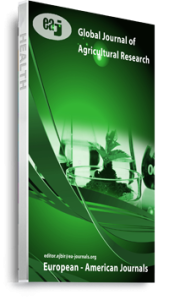Irrigation with treated wastewater (TWW) for agricultural production is gradually becoming very important recycling option that substitutes fresh water (FW) particularly in water stressed regions like the Semi-arid Tropical zone of Nigeria. However, owing to high salt concentrations, dissolved organic matter and organic compounds found in the TWW occasionally, its application can have potential adversative impacts such as reduction of soil aggregate stability (SAS), which in turn affects soil quality. To assess the impact of TWW irrigation in comparison to FW irrigation on soils aggregation and SAS, wet sieving technique and the relationship of coefficient of variation (KV) and Mean Weight Diameter (MWD) were applied, while normal standard procedure was used for determination of some selected soil chemical and physical characteristics. The results indicated that the application of TWW increased the soil aggregate stability, and significantly highest (P<0.05) in phase III soils compared to other phases and control treated soils possibly due to relatively high organic matter content in the TWW sites compared to FW sites. Furthermore, the TWW is characterized by low concentration of salinity and sodicity parameters such as EC and Na, and comparatively high microbial glue like adhesive substances from the OC of the TWW soils. This in turn improve the aggregation, structural stability of the topsoil on one hand, and reduce the soils vulnerability to erosion on the other hand by binding micro-aggregates together to form macro-aggregates and larger pore spaces between micro-aggregates. Consequently, leading to improved water infiltration and permeability. Overall, the results indicated that the use of TWW for irrigation is a viable option, but care should be taken on the type and composition of the TWW particularly with regards to soluble salts concentration, organic and inorganic substances, as they can influence soils aggregate stability with other soil physical and chemical properties. This will consequently affect general soil quality and crop yield.
Citation: Sani, A., Adamu, U.K., Hayatu, B.S., Adam, I. A., Aliyu, R.W., Garba, M.D.,Aliyu, J., Almu, H and Abdulkadir, N.A (2022) Treated wastewater irrigation effects on aggregate stability of Sandy loam soils in Semi-arid Tropical Zone of Nigeria, Global Journal of Agricultural Research , Vol.10, No.4, pp.1-15
Keywords: Salinity; soil aggregate stability; irrigation; treated wastewater; Nigeria

